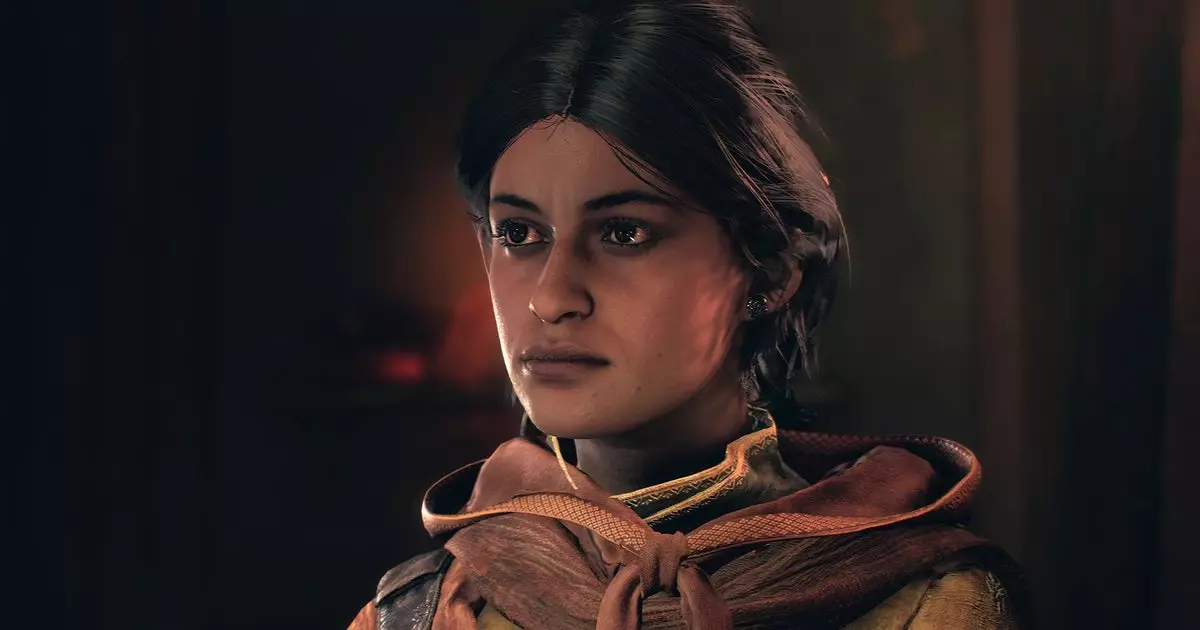The gaming industry is often viewed as a landscape of creativity and innovation, but beneath this veneer lies a grim reality of instability and vulnerability. The recent layoffs at Reflector Entertainment, the Montreal studio responsible for the third-person action-adventure game Unknown 9: Awakening, serve as a stark reminder of this harsh truth. Numerous employees have taken to social media to reveal their job losses, reflecting a growing culture of anxiety within the gaming community. With Bandai Namco as the studio’s owner—who acquired it in 2020—it becomes evident that decisions made at the corporate level can have devastating effects on the lives of individual team members.
The uncertainty surrounding the number of layoffs adds salt to the wounds of those affected. Without a public announcement from Reflector, the precise impact remains obscured, leaving employees to navigate the transition in varying degrees of distress. Notably, layoffs spanned critical creative roles, including art, design, and narrative—a clear indicator that multiple departments bore the brunt of this cost-cutting measure. This cultural trend of downsizing raises further questions about the sustainability of the game’s success and the health of the studio.
Unknown 9: Awakening itself, which explores an alternate-history Earth where players assume the role of a “Quaestor” with special abilities, has garnered mixed reviews since its release. The game was branded with high production values but has not fared well in sales, attributed partially to subpar marketing efforts. The disparity between the potential of its unique narrative and its lackluster launch suggests that studio decisions, perhaps stemming from financial constraints, missed the mark when it came to properly promoting a game that should have been positioned as a blockbuster.
Despite the rich lore surrounding the Unknown 9 franchise—comprised of novels, a scripted podcast, and comic adaptations—its uncertain fate now looms large. Will Bandai Namco continue to invest in this narrative universe, or will it allow it to dissolve alongside the employees let go from Reflector? Such inquiries are not just theoretical; they highlight the fragility of creative endeavors when entwined with business strategies focused solely on short-term financial gain.
The layoffs at Reflector mirror broader trends in the gaming industry, characterized by aggressive cost management and rampant layoffs, particularly seen in Bandai Namco’s Japanese studios. This trend raises ethical concerns regarding corporate responsibility in an industry inherently reliant on creative talents. Financial prudence is essential; however, the pursuit of profit must not overshadow the human element behind game development—a field that inherently thrives on teamwork and collaboration.
This environment of fear resonates through the entire industry, exacerbated by reports of studio closures following poor launches or decisions made by parent companies. The parallel with other titles, including the troubled multiplayer shooter Concord, shows a disturbing pattern where studios are scrapped after disastrous market performance. Once again, the consequences of such corporate maneuvers directly affect workers, who often bear the brunt of decisions far beyond their control.
Reflector Entertainment’s recent turmoil emphasizes a pressing need for change within the gaming industry. As the sector evolves, a balance must be struck between financial accountability and the preservation of the creative spirit that drives its success. Stakeholders—ranging from executives to gamers—must advocate for a more human-focused approach in crafting narratives that not only captivate audiences but also foster sustainable environments for the talents that create them.
As we witness the fallout from these recent layoffs, it’s vital to remember that nurturing talent is paramount. Without creative minds, the gaming industry’s future may be at risk—a cautionary tale signifying that perhaps it is time for companies to pivot their focus from sheer profit margins to the people who fuel their passions. If current trends continue unabated, innovation in gaming will find itself trapped in a cycle where creative energy is sacrificed at the altar of financial expediency.

